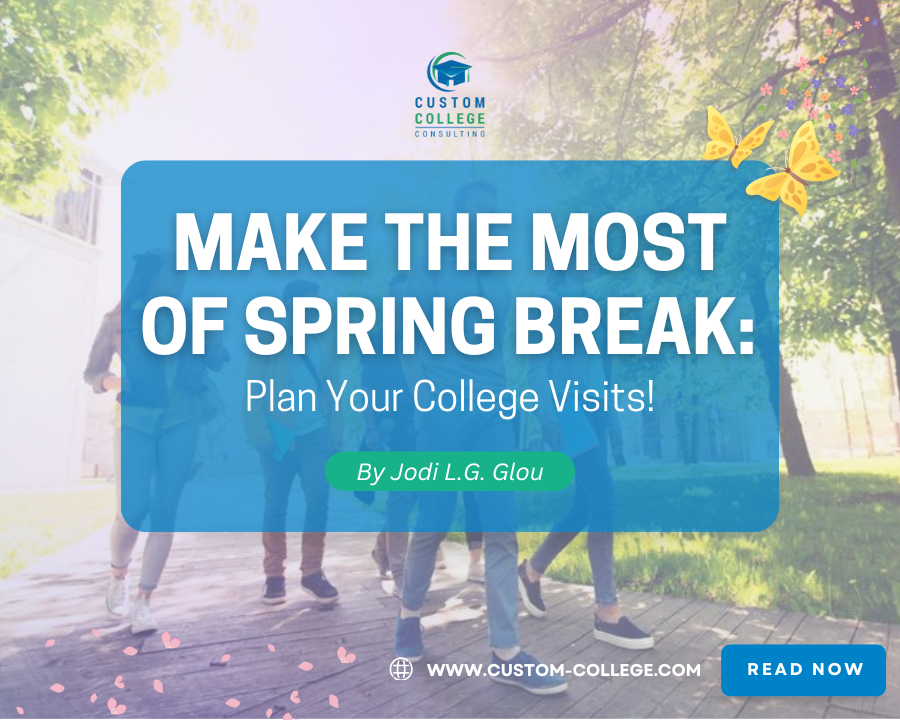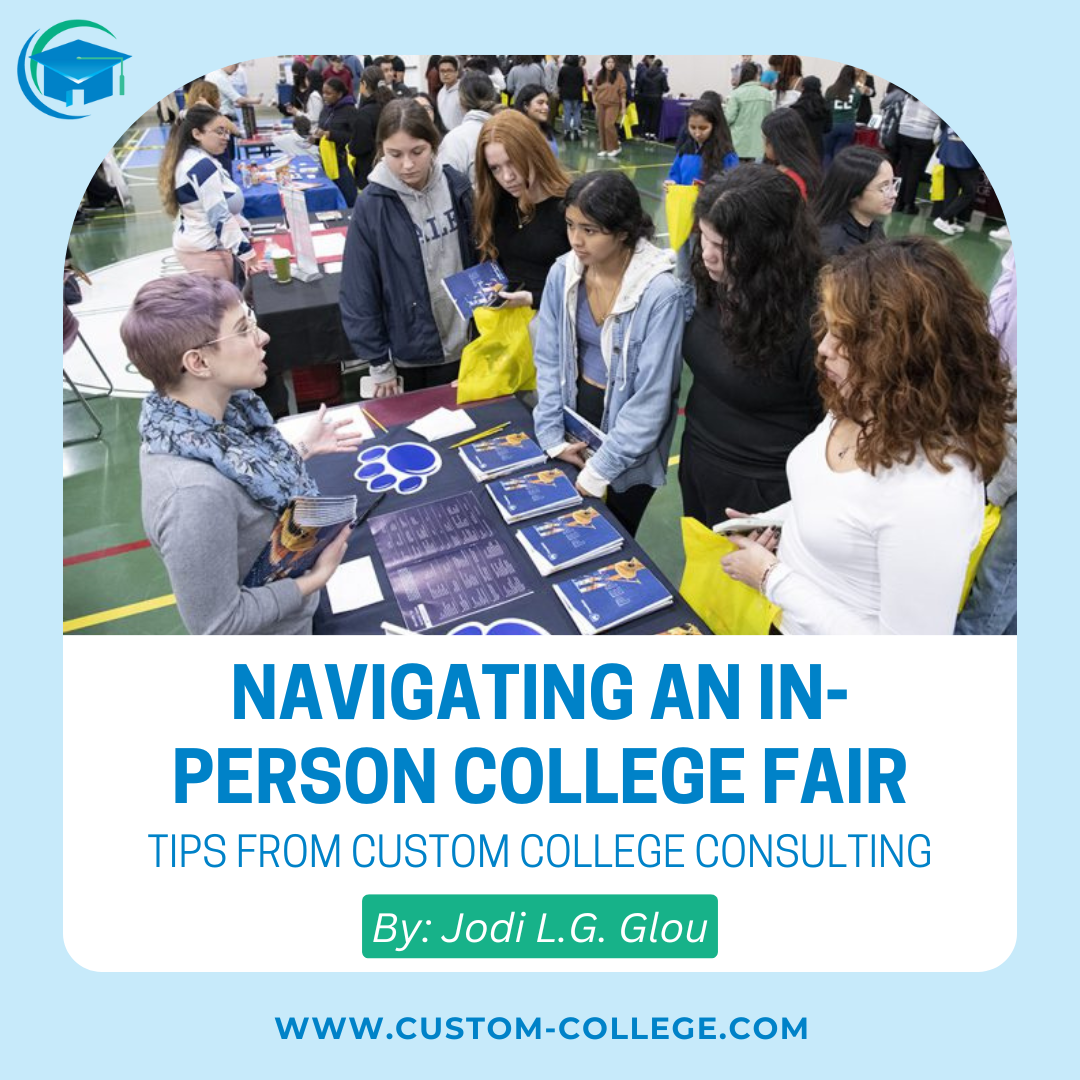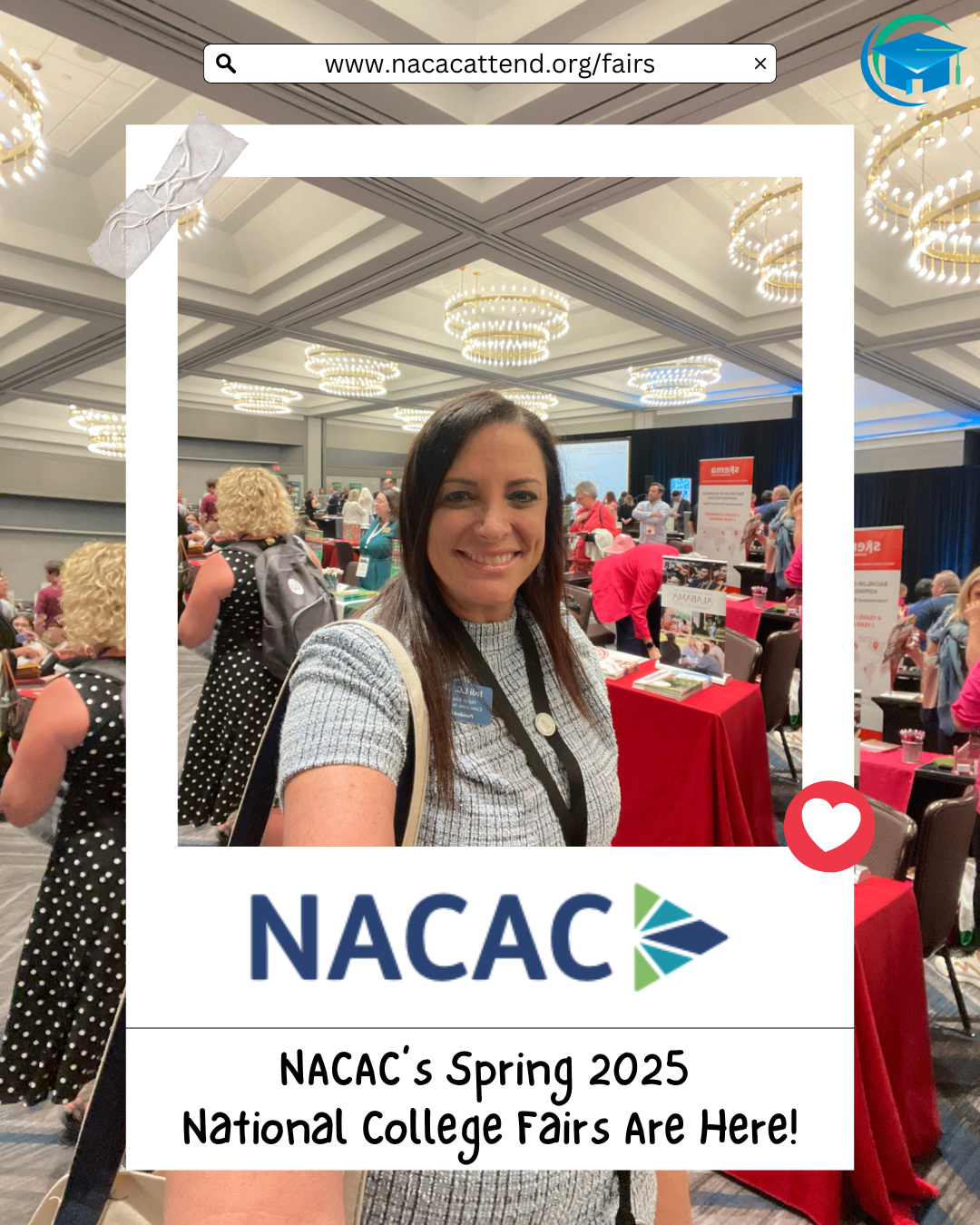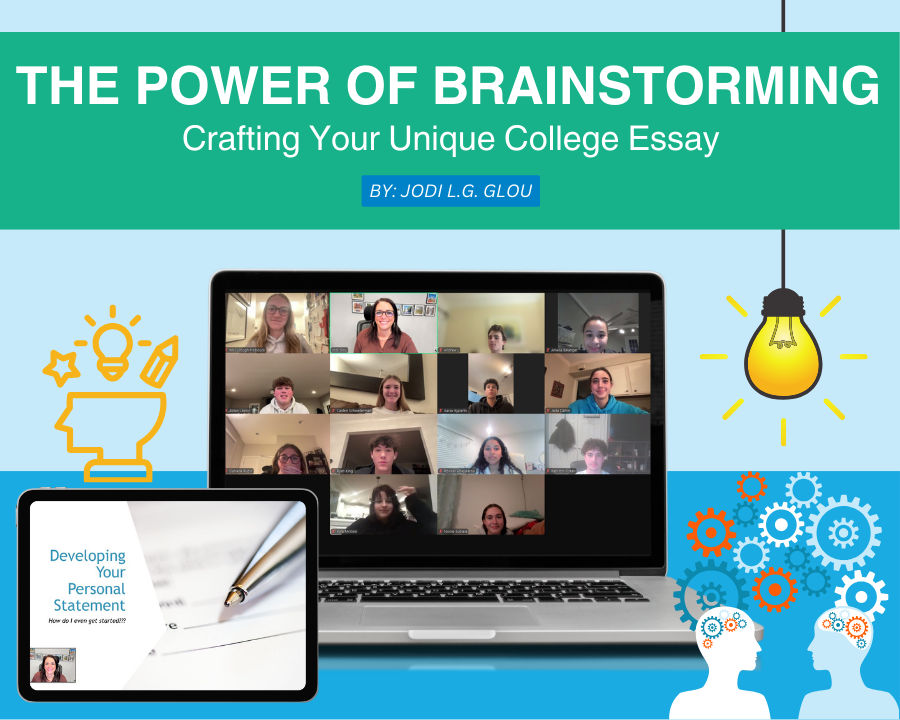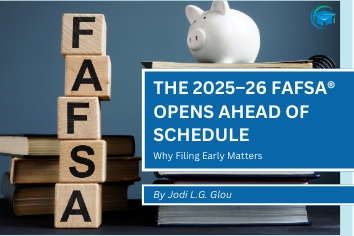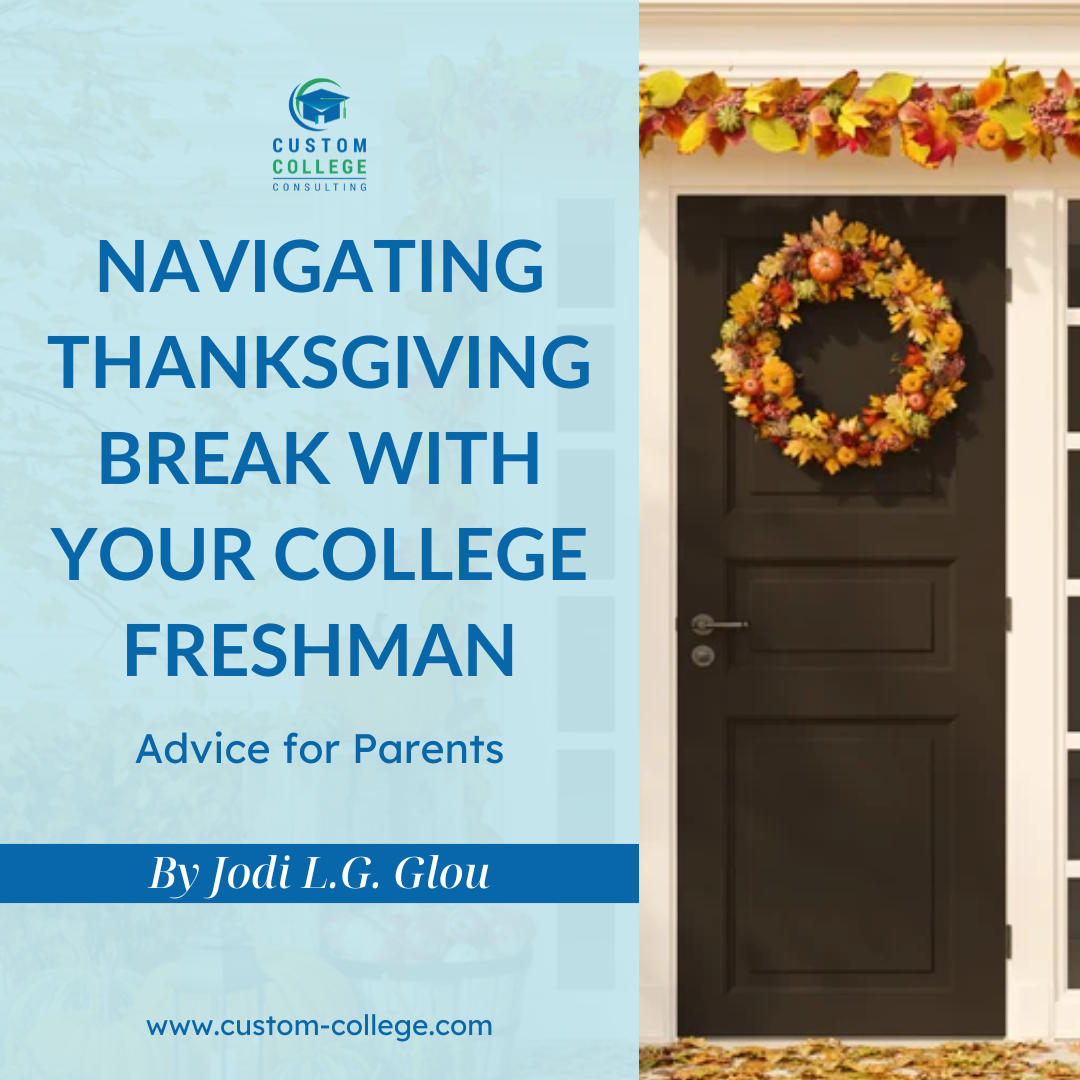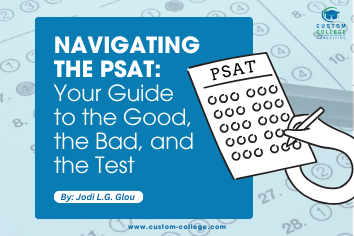Tips and Tricks: How to Make the Most Out of the College Tour
With spring break right around the corner, college touring season is in full swing. But college visits shouldn’t be reserved for high school juniors and seniors. Students and their parents should begin touring colleges as early as freshman year to allow enough time to visit several different campuses to help narrow down the applicant’s top choices BEFORE senior year.
Consider beginning this process by visiting campuses near home, even if you know your student may not want to attend that specific institution. Divide your search to cover different TYPES of colleges. First, focus on different sizes of schools like small (< 3,500), medium (4,000-10,000), and large (>10,000). Also, examine the surrounding areas, including urban, rural, suburban, and college-town settings. You may even want to visit specialty schools like technical colleges, liberal arts schools, and fine art institutions. This will allow you to determine the ideal college before spending money on visiting colleges around the U.S. and abroad.
Once you narrow down your criteria, then you can begin exploring specific campuses. But to optimize your time, here are some suggestions to make the most of your college touring experiences.
Learn Before You Go
College visits can often feel like a whirlwind. Generally speaking, it includes a 30-45 minute information session and an hour-long student-led tour. Therefore, it can be challenging to learn everything there is to know about the institution in that amount of time. So before you set foot on campus, spend some time doing your own research. This will not only allow you to focus on areas you haven’t previously learned about, but it will also allow you to create a list of questions to ask the admissions office as well as student ambassadors.
It is easy to look up college statistics and information about student populations, academic programs, and admissions details on the school’s website as well as other third-party sites like CollegeExpress and College Scorecard. You can even read college reviews on Niche and Unigo. Even if you decide the college isn’t for you, it might help to learn what to look for at the next college visit.
Talk to Students
While you may learn a lot from the information session, which an admissions officer usually runs, the campus tour is your chance to see what life is like from the student's perspective since students often lead them. However, you should also keep in mind that tour guides are trained in what to say and how to answer questions. Their job is to show you around and take you to specific points of interest.
“It is important to remember that your tour guide does not represent every student on campus, nor do they need to be someone you’d choose as a friend,” explained Dr. Andrea Malkin- Brenner, a college transition educator. “If you don’t connect with your tour guide, don’t let it cloud your judgment about the campus or the student population.”
Consider making it a point to approach a few students on your own, whether they are enjoying a cup of coffee or just walking around campus. This is your chance to ask them questions about their experience at the institution. Students are usually happy to talk to you for a few minutes, and you will usually receive very candid responses.
Schedule Meetings with Academic Departments of Interest
If you already know what you are interested in studying, make it a point to contact that department in advance to schedule a meeting or informational interview. Admissions officers can only provide limited insight into the many majors offered at a college. It is also essential to learn more about the major(s) you are interested in studying from the experts themselves.
You may be matched with a professor, teaching assistant, or even the department chair. Consider asking them about prerequisites, student research opportunities, facilities, internships, employer connections, and academic clubs. You may even request to sit in on a class to get a better feel for the learning environment.
Look at Life Beyond Academics
Yes, you are going to college to study, but most of your time on campus will be spent outside the classroom. Learn about what support services are available. What are the athletic facilities like? Are there student activities such as Greek life and other clubs you might be interested in joining? And be sure to even check out the surrounding community.
Take Advantage of Other Touring Possibilities
While it is true that it is best to attend a traditional on-campus tour, sometimes you may be unable to visit a college in person, or the school-led tour was booked. If you already plan to be on campus, many colleges have created comprehensive self-guided tours. Some schools have even developed apps where you will receive the same information as if you were doing a student-led tour.
Regardless, you should stop by the admissions office to let them know you are on campus. They may be able to squeeze you on one of their tours. If not, they will at least be able to provide you with a map and may even allow you to speak with an admissions officer while you are there.
If you cannot make it to the campus itself, colleges and universities are dedicating more time and resources to creating virtual tours that you can do from the comfort of your home without spending money to visit a place you might not end up applying to in the fall.
Don’t Forget the Thank You
In all cases, be sure to gather the names and email addresses of anyone and everyone you spoke to in order to send them a personal note of thanks. Email is more than acceptable; in many cases, it is preferred.
Final Thoughts
But how will you remember all that each school has to offer? Before you head out on tour, be sure to stay organized. Consider taking photos of things unique to each campus, keeping a college journal, and writing down your impressions of each college immediately after you visit.
A new resource even helps families heading out on college tours. The Talking College™ Campus Visits Card Deck is designed to help you analyze everything from first impressions to understanding which questions to ask.
College visits often blend together after a while, and these ideas help to prioritize what you like in a college that can be applied to other institutions. It can even be helpful later when writing an essay about why you want to attend that university.
At Custom College Consulting, we believe in finding the right college fit for our students. Contact us to learn more about our college consulting services.
